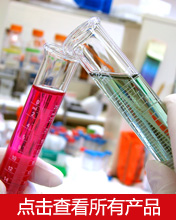
YINGKOU SANZHENG ORGANIC CHEMICAL CO., LTD. LIAONING CHINA
Address: No. 51, Xinxinli, Daqing Road, Zhanqian District, Yingkou City, Liaoning, China電話:0417-3638868
Fax: 0417-3638868
Email: ykszgs@sohu.com
Zip code: 115001
URL::www.barataria.net
The long-awaited "Thirteenth Five-Year Development Plan for the Pesticide Industry" was officially released by the China Pesticide Industry Association (hereinafter referred to as the "Plan").
The "Planning" pointed out that during the "13th Five-Year Plan" period, China's pesticide industry will continue to follow the path of new industrialization with Chinese characteristics, with the theme of promoting the innovation and development of the manufacturing industry, focusing on improving quality and efficiency, and further adjusting the industrial layout and product structure. Promote technological innovation and industrial transformation and upgrading, reduce environmental pollution, and enhance the ability to guarantee food security.
The "Planning" requires that the industry's independent innovation capabilities be comprehensively improved, and the innovation system that is enterprise-oriented, market-oriented, and combines government, industry, university, research and application is improved, and the process of industrialization of innovative products is accelerated.
Low threshold of production licensing system
According to figures released by the National Bureau of Statistics, the national pesticide output reached 3.744 million tons in 2014, which can produce more than 500 varieties and more than 300 varieties per year. In 2014, the main business income of the pesticide industry was 300.841 billion yuan, and the profit was 22.592 billion yuan. From 2011 to 2014, my country's pesticide sales revenue increased by an average annual rate of 17%, and profits increased by an average annual rate of 23.9%.
It is worth noting that, although my country's pesticide industry has achieved remarkable results after years of development, its existing problems cannot be ignored. For example, pesticide companies are small in scale, weak in competitiveness, and low in technology.
According to Zhang Zongyi, an associate researcher at the Nanjing Institute of Agricultural Mechanization of the Ministry of Agriculture and a senior analyst for the wheat industry chain in Jiangsu Province, my country implements a pesticide production license system, but the company has obtained a pesticide enterprise establishment license, a pesticide product production license, and a pesticide product production license. The threshold is low.
With the requirements of various policies, "survival of the fittest" in the pesticide industry is also a necessary process to promote the progress of the industry. "In order to achieve the goal, we first need to raise the industry access and product production permit thresholds, such as raising the requirements for production equipment, technology, scale, intellectual property rights, and pollution discharge." Zhang Zongyi believes that, specifically, production companies must obtain pesticides Only when the products are formally registered and more fixed assets, personnel, capital and other elements can be invested can they build factories, produce and sell pesticide products.
In summary, some companies in the pesticide industry will withdraw from the market under the regulatory requirements of the new environmental protection law, and some companies that cannot afford to undertake costly environmental protection reforms and other governance.
